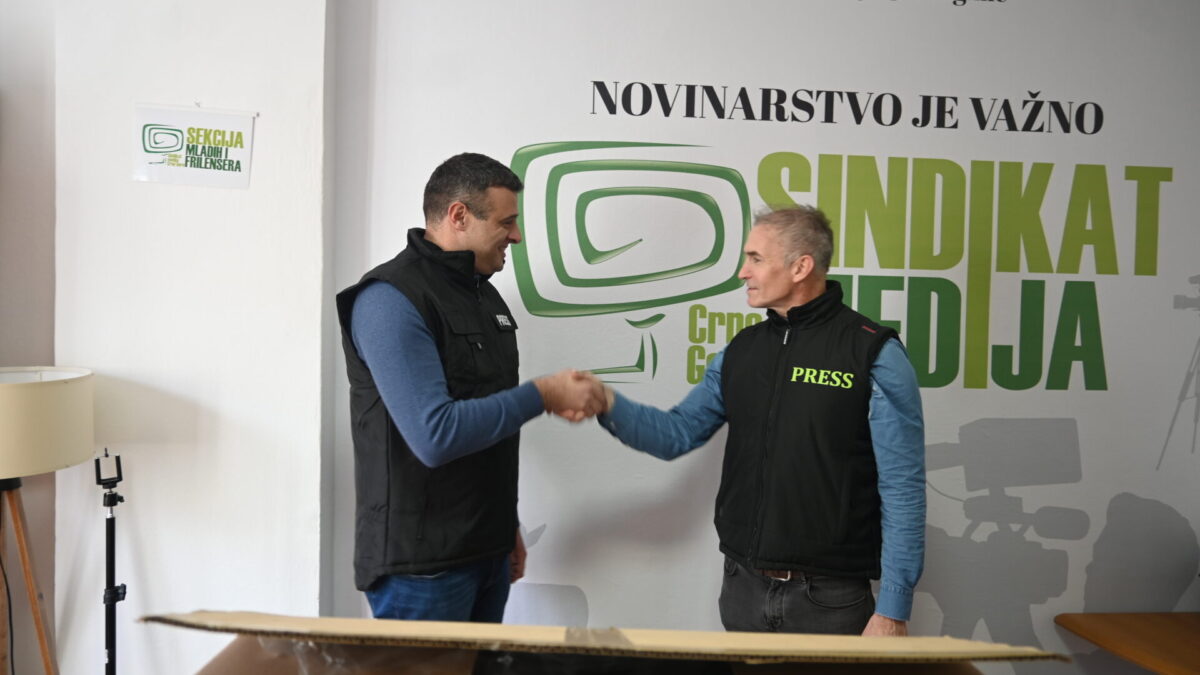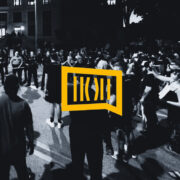Solidarity of the media community with journalists and other media workers who were killed, injured or detained during the Israeli attack on Gaza must be at a much higher level, whereas the media must hold governments accountable and provide the public with information about all crimes occurring in that region.
This was the key message from the roundtable discussion on the rights of Palestinian media workers, organized by the Trade Union of Media of Montenegro (TUMM) and the Embassy of Palestine in Montenegro.
Radomir Kračković, President of the TUMM, highlighted data from the International Federation of Journalists, according to which over 135 Palestinian media workers have been killed since the escalation of the conflict, hundreds injured, and many reported missing.
“Discussing such topics often leads to the trap of seeing people as mere statistics. We forget that these are individuals with life stories, plans, and dreams, all violently cut short. It is entirely different when you think of a fellow journalist, Mohammed Saleh Al-Sharif, who, less than three weeks ago, was near a hospital in northern Gaza when he was shot by a drone. Or journalist Wafa Aludaini, who, along with her husband and two children, was killed in an Israeli airstrike in central Gaza,” Kračković said.

He also stated that the Balkans, unfortunately, have their own experiences with conflicts, and that over 150 reporters were killed during the wars of the 1990s.
“In most of these cases, almost nothing has been done to shed light on their deaths. We must do everything to ensure this does not happen in Gaza,” he added.
The Palestinian Ambassador to Montenegro, Rabii Alnantouli, pointed out that media institutions have also been targeted, with as many as 88 attacks reported.
“Media workers have no freedom, no workplace protection, no equipment, communication tools, medicine, food, or water. The Israeli army directly threatens journalists via their mobile phones, targeting their family members and private homes. Around 90% of Palestinian journalists in Gaza have been forcibly displaced, some multiple times,” he warned.
Alnantouli also noted that no international media outlets are available in Gaza, Palestinian media content is being blocked, and global media often use language that downplays Israeli crimes and misleads the public.

Journalist Predrag Nikolić emphasized that the issue of Palestine is a question of respect for civilizational values. He criticized the hypocritical stance of Western media regarding the events in Gaza.
“The war will end. It is crucial to document all crimes so that someone can be held accountable in the future and to maintain a culture of remembrance for the crimes and victims. Israelis have this deeply ingrained, and it is vital for Palestinians to do the same at a time when they are experiencing genocide,” he said.
Journalist Emina Hodžić Knežević expressed concern that Montenegrin media, despite confirmations from international sources, are taking sides.
Journalist Aljoša Turović noted that young people often rely on social media for information rather than mainstream media, which can be problematic due to the lack of editorial oversight and adherence to professional standards.
Journalist Željka Zvicer reiterated that the victims must not be seen as mere statistics but as individuals with names and identities.










